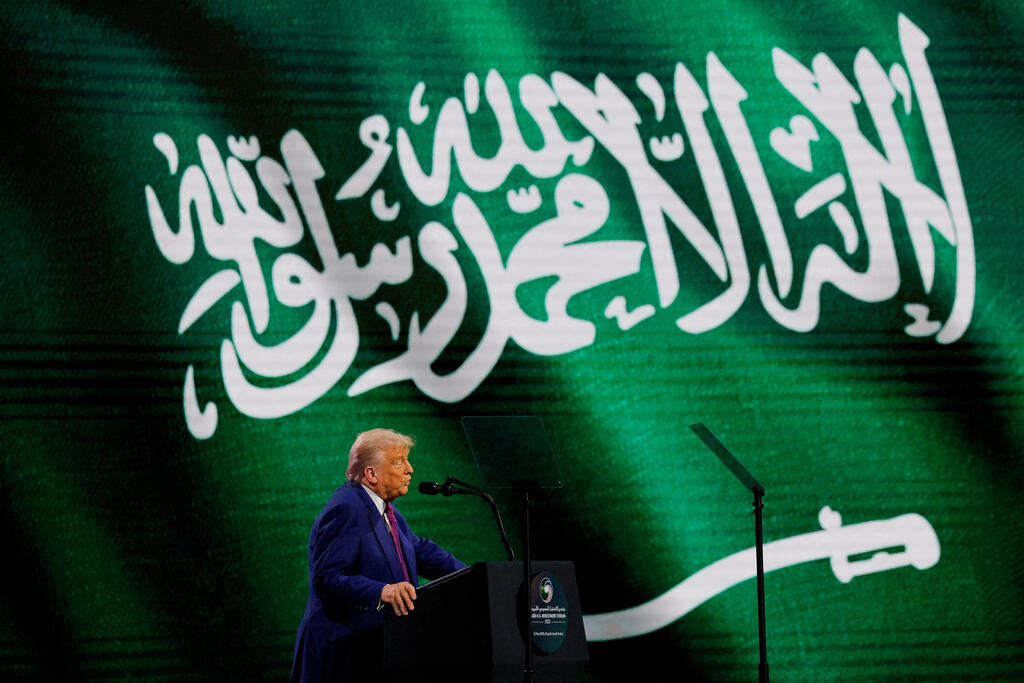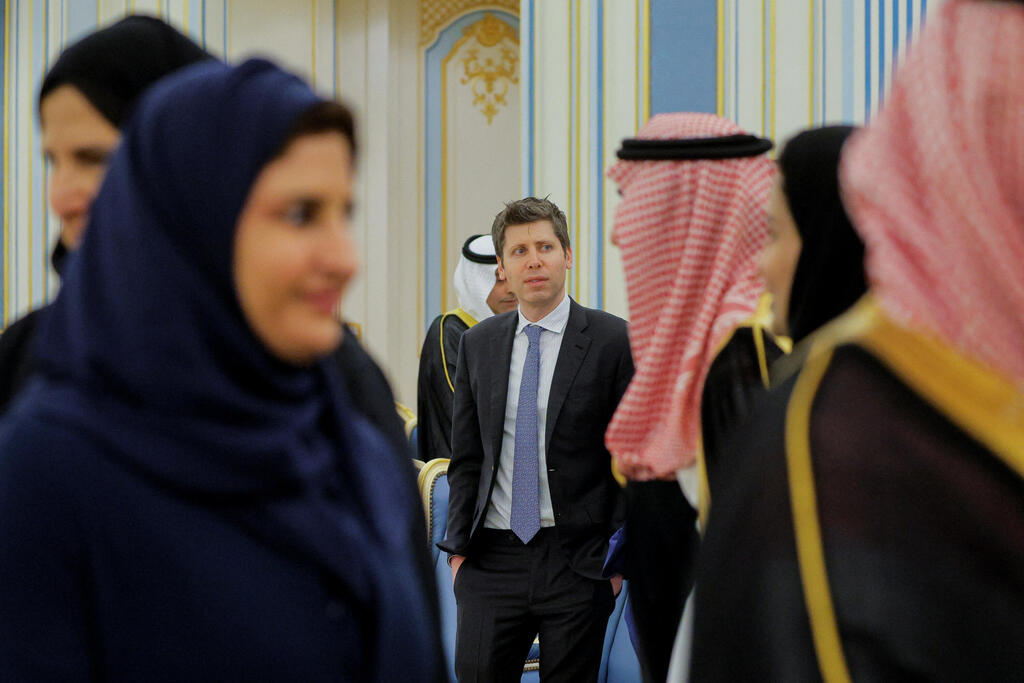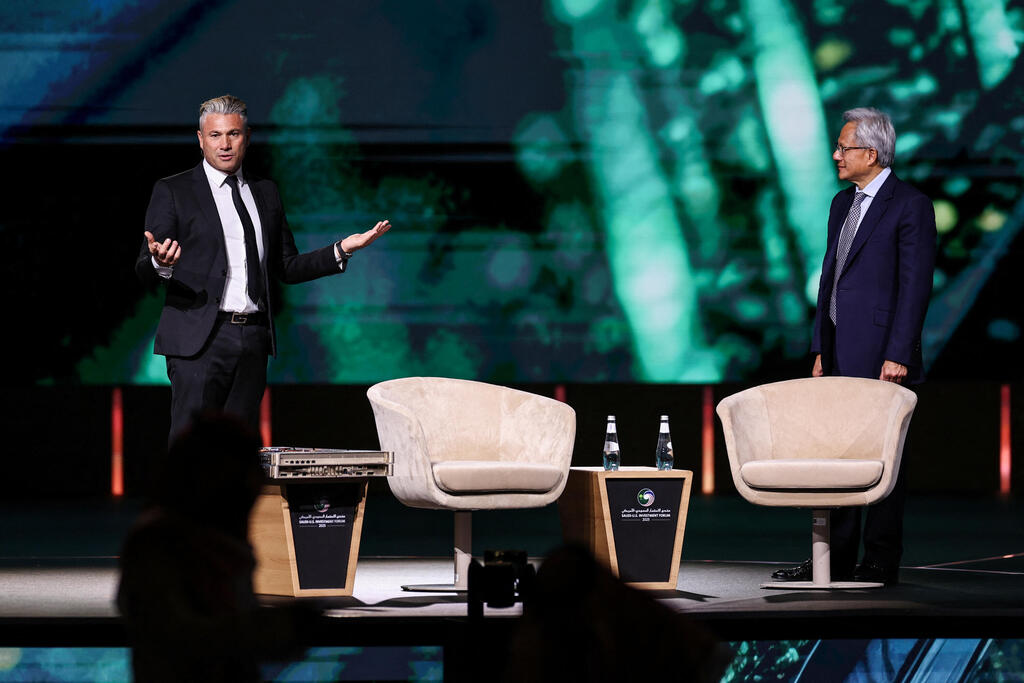Jensen Huang of Nvidia, Sam Altman of OpenAI, Elon Musk of Tesla, X and SpaceX, Andy Jassy of Amazon, Lisa Su of AMD and Ruth Porat of Alphabet (Google's parent company) are just a few of the top U.S. tech figures who found themselves under one roof this week, accompanying President Donald Trump on his tour of the Gulf states.
None of them were there for mere courtesy: they came to discuss business and negotiate deals worth tens of billions of dollars in artificial intelligence partnerships, including chips, data centers and cutting-edge technologies—the hottest and most sought-after commodities in the world. American dominance in these fields remains a powerful lever for Trump during his Middle East visit. Oil-rich nations have discovered a new treasure—Silicon Valley—and are determined to stake their claim.
Technology is indeed at the heart of the numerous deals signed during the visit. Already, it accounts for a significant portion of the $600 billion in commitments from Saudi Arabia that Trump announced on Tuesday. The UAE also announced, even before the visit, an unprecedented investment plan in the U.S. market—$1.4 trillion over the next decade. MGX, a new investment fund from Abu Dhabi, pledged to assist with $100 billion in artificial intelligence projects across the two nations.
On Tuesday, Nvidia and AMD announced a massive agreement to supply AI chips for Saudi Arabia's ambitious AI project, Humain, over the next five years. This will support the establishment of massive data center projects (AI Factories) in the kingdom.
Humain operates under Saudi Arabia's Public Investment Fund and will offer AI services and products, including server farms, AI infrastructure, cloud capabilities and advanced AI models. The company will also develop Arabic-language versions of large language models (LLMs). The CEO of Humain is Tarek Amin, the former CEO of Aramco, and its president is none other than Saudi Crown Prince Mohammed bin Salman.
Other companies, such as Cisco, Qualcomm and Amazon's cloud division (AWS), also announced their participation in the project. AMD stated that it would help build an "open, scalable AI infrastructure that will be the most flexible and cost-effective in the world." AWS declared its partnership with an investment exceeding $5 billion.
Nvidia revealed that this is just the first stage of a larger deal in which Saudi Arabia will purchase hundreds of thousands of AI chips from the company. In the initial phase, Humain will receive 18,000 of Nvidia's newest Blackwell chips.
According to a joint statement by Nvidia and Humain, they will "leverage Nvidia's platforms to establish Saudi Arabia as a global leader in AI-optimized GPUs, cloud computing and digital transformation." The planned AI server farms will have a capacity of up to 500 megawatts and will include "several hundred thousand" of Nvidia's most advanced GPUs.
Get the Ynetnews app on your smartphone: Google Play: https://bit.ly/4eJ37pE | Apple App Store: https://bit.ly/3ZL7iNv
Meanwhile, companies such as Google, Oracle, Salesforce and Uber have committed to investing $80 billion in advanced technologies in both countries. According to the White House, Uber alone will invest $80 billion in "transformative advanced technologies." The same statement announced that Saudi company DataVolt would invest $20 billion in data centers and energy infrastructure in the U.S. OpenAI, for its part, announced it is exploring the establishment of new data centers in the UAE.
Elon Musk, one of Trump's close allies and advisors, stated during the visit to Saudi Arabia that the kingdom has approved the use of SpaceX's Starlink satellite internet services for aviation and maritime transportation. Musk also promised to bring Tesla's autonomous taxis to the Saudi government in the future. "I think it will be very exciting," he said.
Saudi Arabia, aiming to reduce its economy's dependence on oil revenues, seeks to position itself as a hub for artificial intelligence outside the United States. Gulf nations are flush with energy and cash, enabling them to build data centers powering AI systems.
However, while some of Trump's advisers are concerned about selling AI chips to foreign nations, others view these deals as opportunities to leverage U.S. influence globally despite the risks. Either way, the visit allows top tech executives to strengthen their ties with Middle Eastern leaders and investors. For Trump, it also serves as an opportunity to counter China's growing influence in the Middle East and the global tech sector.




